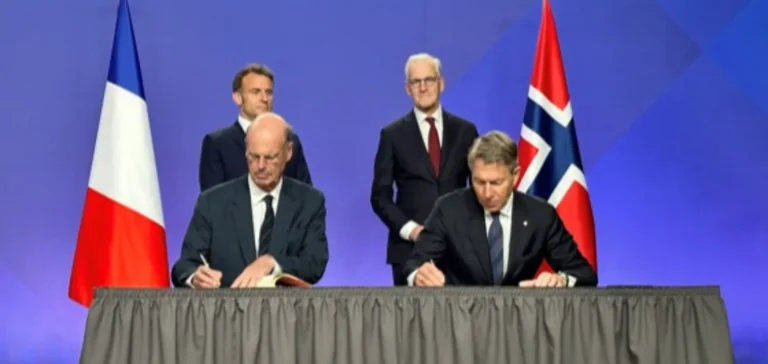France and Norway have officially concluded a bilateral agreement enabling cross-border transport of carbon dioxide (CO₂) intended for offshore geological storage. Signed in Oslo by Éric Lombard, French Minister of Economy, and Terje Aasland, Norwegian Minister of Energy, this agreement creates a regulatory framework facilitating commercial exchanges related to captured carbon. Future planned operations primarily involve sending industrial CO₂ from France to existing Norwegian storage facilities located in the North Sea. This agreement complies with international conditions defined by the London Protocol concerning substances intended for underwater storage.
Offshore infrastructure development
Two major projects are notably concerned by this agreement: Northern Lights and CO₂ Highway Europe. The Northern Lights project, operational since September 2024, is jointly managed by Equinor, Shell, and TotalEnergies. This Norwegian facility has an initial storage capacity of 1.5 million tons of CO₂ per year, captured from European industries. The CO₂ Highway Europe project, meanwhile, plans to establish an underwater CO₂ transport network connecting several European ports, including Dunkirk and Zeebrugge, to Norwegian infrastructure.
The construction of these infrastructures will require substantial investments in coastal terminals and subsea pipelines specifically designed to transport compressed or liquefied CO₂. The main potential carbon suppliers will be major industrial groups from the steel, chemical, and petroleum sectors, facing stringent regulatory targets for emission reductions. This cooperation could thus significantly stimulate the European market for industrial infrastructures dedicated to managing captured carbon.
European legislative and commercial framework
This agreement follows recent adoption by the French Parliament of legislation explicitly authorizing the export of CO₂ abroad for permanent storage. Unlike Norway and Denmark, France currently does not have any suitable sites for geological carbon storage within its territory. Therefore, this cross-border cooperation represents a major strategic opportunity for French companies involved in CO₂ capture and transportation.
The commercial implications are considerable, notably in terms of contracts for companies specialized in offshore infrastructure, subsea pipelines, and gas compression systems. Developments associated with these projects could attract significant investment, involving European oilfield service companies and engineering firms. In the long term, the goal of both countries is to facilitate the emergence of a structured European market for offshore storage of industrial carbon.
Implications for industrial actors
However, before becoming operational, these projects must meet strict technical and environmental requirements, consistent with European and international standards. Impact studies and detailed assessments will be required to ensure regulatory and technical compliance of these subsea infrastructures. The Franco-Norwegian agreement thus marks a decisive step toward the industrial and commercial structuring of a European market for offshore CO₂ storage, with potential significant economic repercussions for many continental stakeholders.






















